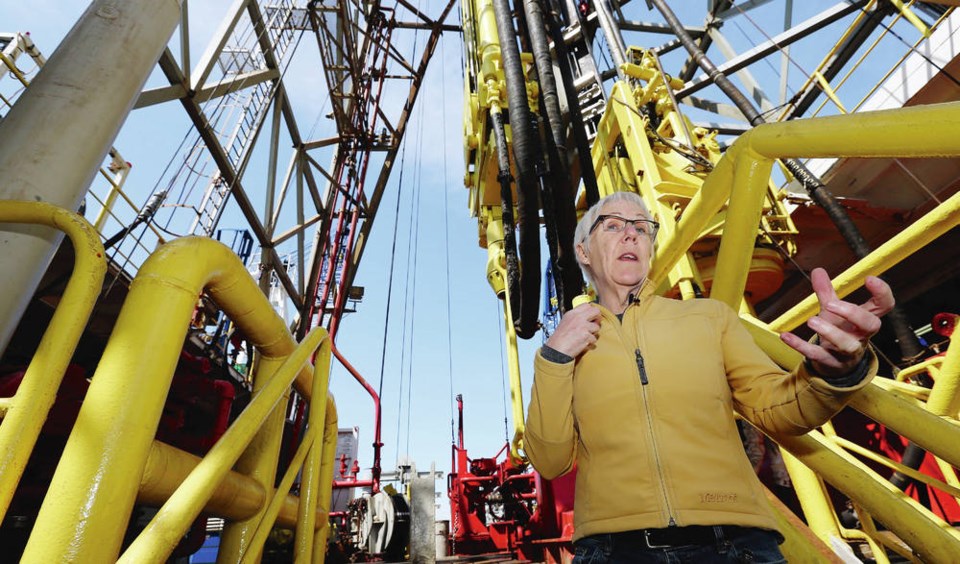Ocean Networks Canada, the University of Victoria-based entity that monitors three oceans surrounding the country in real time, got a timely funding boost from the federal government Wednesday as alarm bells ring over climate change.
Kate Moran, president and CEO, said the $8.7-million injection from the Department of Fisheries and Oceans will help to bolster the network during a time of rapid ocean warming, melting polar ice and changing coastlines.
“The oceans have buttressed us from the worst impacts of climate change, absorbing 90 per cent of the heat and one-third of the carbon dioxide from the use of fossil fuels,” said Moran. “The oceans are so important, and we need to monitor them to assess their health.”
Ocean Networks Canada uses cabled observatories, remote-control vehicles and interactive sensors from Mill Bay to Resolute in the high Arctic and around to Halifax, amassing huge amounts of data that is shared with scientists and governments across the country and internationally.
Moran said collecting “big data” from the network increases “ocean intelligence” and helps to assess everything from whale and organism health, mitigation of earthquakes and tsunamis, and changing trends in temperature and water levels.
The interactive nature of the network also puts the data in the hands of the public, Indigenous communities and decision makers at all levels of government, she said.
“Ocean intelligence is a bridge to action and change,” said Moran. “As sea levels rise, this puts the technology in the hands of communities in their own front yards.”
“We are a data machine, with open access to anyone in the world,” said Moran.
The network marks its 15th anniversary this year and has an ambitious strategic plan to deliver a roadmap for science, communities and industry over the next decade. It is designed to align with the United Nations’ broad view of how ocean health must be sustained in an era of rapid climate change.
This week, the UN’s Intergovernmental Panel on Climate Change said governments have to act quickly to reduce emissions or global warming will lead to “irreversible loss of the most fragile ecosystems, and crisis after crisis for the most vulnerable people and societies.”
Canada has the longest coastline in the world, covering 243,000 kilometres. About seven million people live in coastal communities that rely heavily on ocean industries. The federal government said those industries contribute $36.6 billion to annual gross domestic product and support 300,000 jobs.
Minister of Fisheries and Oceans and the Canadian Coast Guard Bernadette Jordan said Canada’s three oceans are fundamental to its identity and culture. “They provide recreational and commercial opportunities to Indigenous and coastal communities, and connect us globally,” she said. “Working with research organizations to collect and share information and data on ocean conditions is key to protecting our oceans for the benefit of future generations.”
Moran said Ocean Networks Canada is committed to address today’s biggest challenge — climate change, “which was so clearly urgently highlighted this week” by the UN.
Kevin Hall, president and vice-chancellor at the University of Victoria, said the funding shows Canada’s “unwavering commitment to protecting our oceans, coastlines and industries for future generations.”
- - -
To comment on this article, send a letter to the editor: [email protected]



